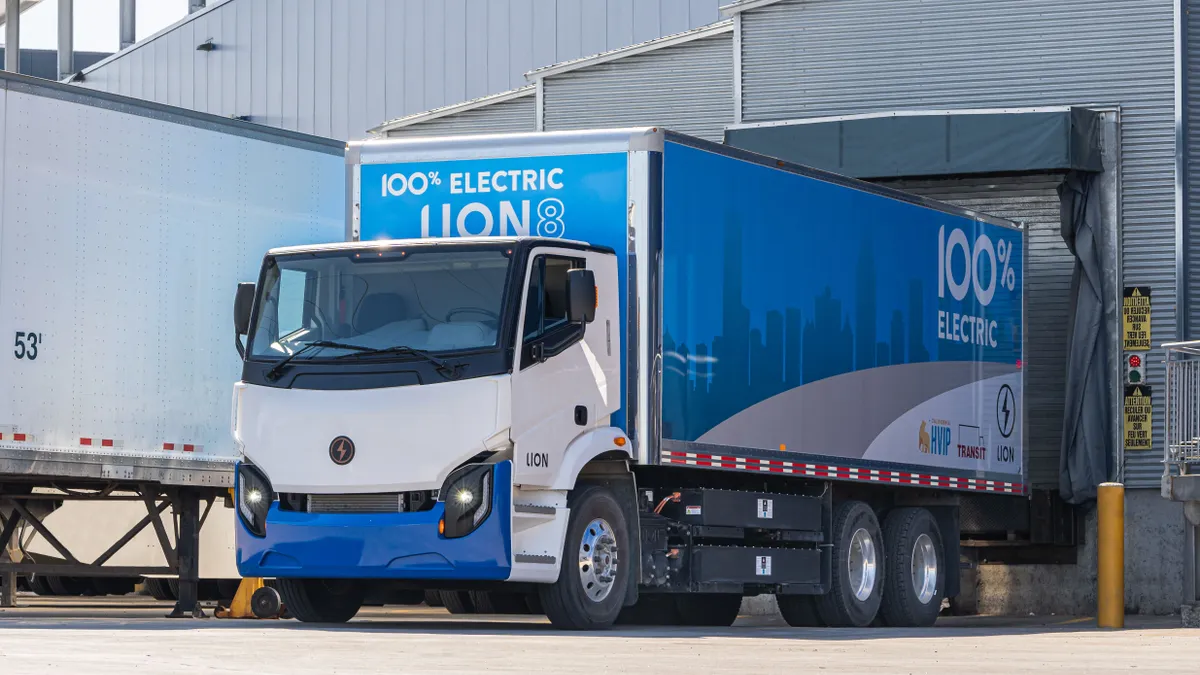Dive Brief:
- CEOs think other states will adopt environmental regulations that are the same or similar to California emission regulations made in recent years. Among the rules, 75% of new Class 4–8 trucks must be zero emission by 2035.
- Hyliion and Lion Electric executives discussed California’s Advanced Clean Fleets and Advanced Clean Trucks rules during earnings calls last week, saying that they expect many states would follow the state’s regulations.
- A consortium of at least 16 other states, D.C. and Québec is also committed to 100% zero-emission vehicles by 2050. “A lot of states and a lot of Canadian provinces will follow what California is doing,” Lion Electric CEO Marc Bedard said on a Q1 earnings call.
Dive Insight:
A string of states have already adopted California’s Advanced Clean Trucks rule. They include Massachusetts, New Jersey, New York, Oregon, Vermont and Washington state.
Colorado also adopted the rule but will have a heavy duty truck provision begin in 2027. And Rhode Island said last week that it plans to move forward with its own rules.
California’s regulation allows credit transfers and requires manufacturers to make a growing number of zero-emission vehicles available from 2025 onward, reaching 75% of new Class 4–8 trucks for the 2035 model year.
But industry voices have noted concerns. While the American Trucking Associations has expressed its support for reducing emissions on the federal level, it has cautioned regulators to consider realistic adoption timelines, in addition to technological concerns and costs. The Owner-Operator Independent Drivers Association said California's rules are pushing truck drivers out of state with unrealistic electric vehicle prices and a lack of charging infrastructure.
And while other states may have slightly different timelines on implementation, Hyliion CEO Thomas Healy said on his company’s Q1 earnings call that they’re generally going to be following what the California Air Resources Board is doing.
As part of the California regulation, only zero-emission drayage fleets can register with CARB starting in 2024, prompting Nikola to move out of its joint venture in Europe to focus on North America, Nikola CEO Michael Lohscheller also said on an earnings call.
Matt Schrap, CEO of the Harbor Trucking Association, wrote earlier this month on a LinkedIn post about implications that California’s move has on the U.S.
“California is the ‘bleeding edge’ of progressive policy, and I was reminded again this past weekend that when California sneezes, the rest of the country catches a cold,” he wrote.













